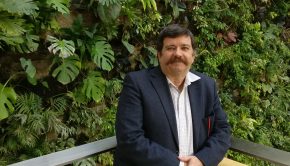The Role of Education, Policing
With people voicing their concerns about police officers and their use of excessive force, the public’s eye is on the police force.
Dr. Gary Ellis, program head of Justice Studies at the University of Guelph-Humber, thinks that the police service isn’t doing a good job in telling its story.
He said people are questioning two things: the value of the police and the value of police work.
“If you want to convince somebody that what you’re doing is valuable, then you need to be able to communicate that but it has to be evidence based. People are long passed trusting the police just because they are the police,” said Dr. Ellis.
He used carding, police officers stopping people and storing their details in a police database, as an example. Dr. Ellis said that if police think that carding is a necessary tool, they should explain why and provide evidence.
“I think part of the thing is they need…education can help them tell their story better.”
Jason Vassell, an instructor at Durham College and former RCMP officer, said education helped him be a better officer.
“I found that even with a degree which really helped me to understand a few things better and get a perspective from other officers and different things. I think that it does make you a better officer because it makes you cultured and exposes you to different viewpoints,” said Vassell.
Vassell started his degree after he was hired by the RCMP and graduated from the Justice Studies program at the University of Guelph in 2010.
The University of Guelph-Humber offers two justice studies programs: a traditional four-year undergraduate program and a two-year degree completion program.
Dr. Ellis said that having professors in the field gives students an opportunity to talk about current issues, gain perspective and tools that can help them in the workforce.
“We have all these people who are currently out in the world applying what they know. So they come in and they bring that in the classroom,” said Dr. Ellis. “Our professors bring in what is current, adjust to what is current, and discuss what is happening and our students do as well because they are actually living in the world.”
Osgoode Hall Law School student and recent Guelph-Humber graduate, Rick Frank, said that he chose Guelph-Humber’s justice program because it was unique. Frank felt that the program was very law enforcement based but there were a few courses that stood out to him.
“’Conflict Resolution’ by Professor Dino Doria. He’s a former cop. [A] very engaging class. It made you think a lot about conflict and how it to resolve in any field. That was more what I could use it in law and in another profession,” said Frank.
For more information on the justice studies programs at Guelph-Humber, visit https://www.guelphhumber.ca/Justice.





